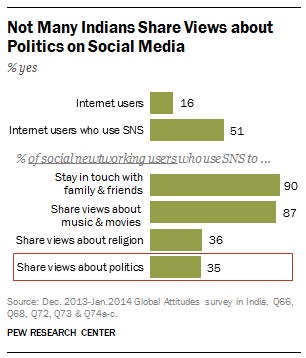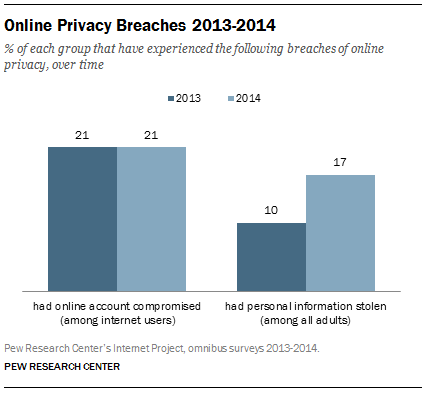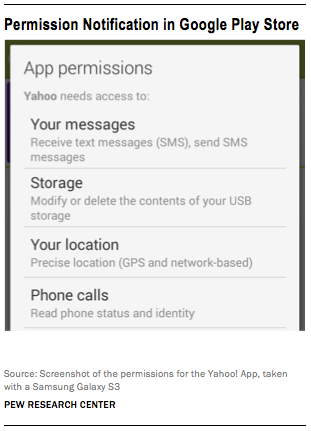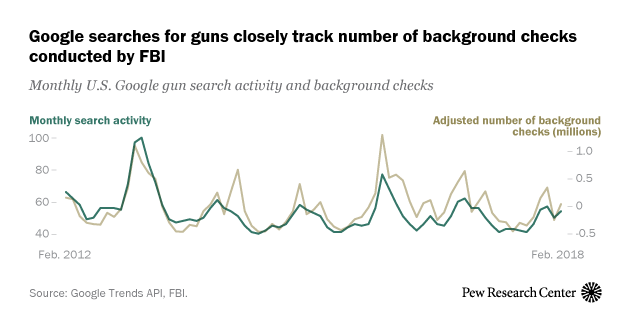 A look at key trends in the main sectors of the news media from Pew Research Center's State of the News Media 2014.
A look at key trends in the main sectors of the news media from Pew Research Center's State of the News Media 2014.- 28516Murphy2025-03-20
 A typology of public library engagement in America that examines the spectrum of Americans’ relationships with public libraries. This elaborate typology of groups based on their library engagement sheds light on broader issues around the relationship betw
A typology of public library engagement in America that examines the spectrum of Americans’ relationships with public libraries. This elaborate typology of groups based on their library engagement sheds light on broader issues around the relationship betw- 27855Murphy2025-03-20
 Online video is clearly becoming a part of the news media landscape. News is a part of what people watch online, and, more than ever, the public is a part of creating this news. But advertising and revenue opportunities, while they exist, are complicated.
Online video is clearly becoming a part of the news media landscape. News is a part of what people watch online, and, more than ever, the public is a part of creating this news. But advertising and revenue opportunities, while they exist, are complicated.- 23076Murphy2025-03-20
 The World Wide Web, first conceived of 25 years ago this week, has been adopted by American society in record time.
The World Wide Web, first conceived of 25 years ago this week, has been adopted by American society in record time.- 23226Murphy2025-03-20
 News audiences are watching more digital news video than ever before and newsrooms are investing in creating more video content.
News audiences are watching more digital news video than ever before and newsrooms are investing in creating more video content.- 29828Murphy2025-03-20
 Web visitors who arrive at news sites by typing in a URL or clicking a bookmark behave quite differently from those who arrive via search engine or social media.
Web visitors who arrive at news sites by typing in a URL or clicking a bookmark behave quite differently from those who arrive via search engine or social media.- 24804Murphy2025-03-20
 In many ways, 2013 and early 2014 brought a level of energy to the news industry not seen for a long time. Even as challenges of the past several years continue and new ones emerge, the activities this year have created a new sense of optimism – or perhap
In many ways, 2013 and early 2014 brought a level of energy to the news industry not seen for a long time. Even as challenges of the past several years continue and new ones emerge, the activities this year have created a new sense of optimism – or perhap- 20278Murphy2025-03-20
 More Americans search for “church” around Easter than at any other time, with the Christmas season usually ranking second, according to Google Trends data.
More Americans search for “church” around Easter than at any other time, with the Christmas season usually ranking second, according to Google Trends data.- 23649Murphy2025-03-20
 Survey Report There is widespread opposition to internet censorship in emerging and developing nations. Majorities in 22 of 24 countries surveyed say it
Survey Report There is widespread opposition to internet censorship in emerging and developing nations. Majorities in 22 of 24 countries surveyed say it- 23554Murphy2025-03-20
 There are some striking differences between women and men in their hopes and fears about the future.
There are some striking differences between women and men in their hopes and fears about the future.- 21498Murphy2025-03-20
 While half of Indian internet users regularly access social media sites, such as Facebook or Twitter, only about a third of these users share views about politics on these social networks.
While half of Indian internet users regularly access social media sites, such as Facebook or Twitter, only about a third of these users share views about politics on these social networks.- 25523Murphy2025-03-20
 Americans are consistently more likely to say that the U.S. spends too much on space exploration than too little.
Americans are consistently more likely to say that the U.S. spends too much on space exploration than too little.- 23874Murphy2025-03-20
 The Internet Corporation for Assigned Names and Numbers (ICANN) is a multinational organization that oversees the address book of the internet thanks to a contract issued by the U.S. government. What happens when this contract expires in September 2015?
The Internet Corporation for Assigned Names and Numbers (ICANN) is a multinational organization that oversees the address book of the internet thanks to a contract issued by the U.S. government. What happens when this contract expires in September 2015?- 23860Murphy2025-03-20
 A new Pew Research Center State of the News Media analysis finds that the growing digital news world is largely comprised of hundreds of smaller sites, often local in scope, that are working to fill gaps left by legacy reporting cuts.
A new Pew Research Center State of the News Media analysis finds that the growing digital news world is largely comprised of hundreds of smaller sites, often local in scope, that are working to fill gaps left by legacy reporting cuts.- 22924Murphy2025-03-20
 While the digital ad pie is growing, the numbers show that news organizations are competing for an increasingly smaller share of those dollars.
While the digital ad pie is growing, the numbers show that news organizations are competing for an increasingly smaller share of those dollars.- 21676Murphy2025-03-20
 Growing numbers of online Americans have had important personal information stolen and many have had an account compromised.
Growing numbers of online Americans have had important personal information stolen and many have had an account compromised.- 24008Murphy2025-03-20
 The Supreme Court will hear two cases this term about whether police can search the contents of a mobile device without a warrant.
The Supreme Court will hear two cases this term about whether police can search the contents of a mobile device without a warrant.- 27391Murphy2025-03-20
 The Heartbleed security flaw on one of the most widely used “secure socket” encryption programs on the internet had an impact on a notable share of internet users
The Heartbleed security flaw on one of the most widely used “secure socket” encryption programs on the internet had an impact on a notable share of internet users- 21733Murphy2025-03-20
 The Uniform Law Commission, a body of lawyers who produce uniform legislation for states to adopt, recently drafted the “Fiduciary Access to Digital Assets Act (FADA)," which would grant fiduciaries broad authority to access and control digital asset
The Uniform Law Commission, a body of lawyers who produce uniform legislation for states to adopt, recently drafted the “Fiduciary Access to Digital Assets Act (FADA)," which would grant fiduciaries broad authority to access and control digital asset- 23528Murphy2025-03-20
 An analysis of the Twitter conversation on the eve of the European Union elections suggest that those social media users are divided on the value of the EU and not particularly excited about the candidates for the European Commission presidency.
An analysis of the Twitter conversation on the eve of the European Union elections suggest that those social media users are divided on the value of the EU and not particularly excited about the candidates for the European Commission presidency.- 27803Murphy2025-03-20
 Read key findings from an analysis that looks into the public's interest in guns as potential consumer products, rather than as a subject of general interest.
Read key findings from an analysis that looks into the public's interest in guns as potential consumer products, rather than as a subject of general interest. A majority of Americans say they use YouTube and Facebook, while use of Instagram, Snapchat and TikTok is especially common among adults under 30.
A majority of Americans say they use YouTube and Facebook, while use of Instagram, Snapchat and TikTok is especially common among adults under 30.






















